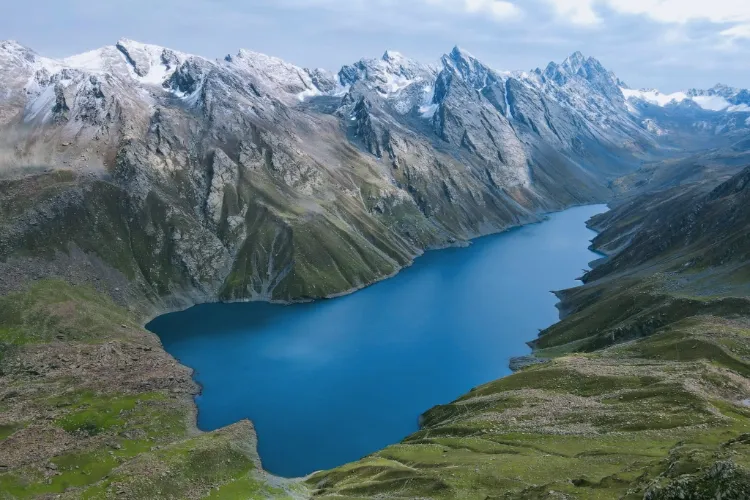
Jammu
The annual four-day pilgrimage to the 11,500 feet high Kounsar Nag Lake, considered sacred in Kashmir Shaivism and Hinduism, concluded successfully with a group of devotees returning to the base camp in Reasi district of Jammu and Kashmir, officials said on Tuesday.
The pilgrimage route from Reasi to Gorvan and up to Kousar Gali falls under the jurisdiction of Reasi district, while the stretch from Kousar Gali to the Oligotrophic lake in the Pir Panjal mountain rage falls under Kulgam district.
The yatra was jointly flagged off by MLA Reasi Kuldeep Raj Dubey and Deputy Commissioner, Reasi Nidhi Malik from Shiv Mandir, Reasi on August 7 amid an atmosphere of deep religious fervour and spiritual enthusiasm.
"Despite the unpredictable Himalayan weather and the challenging terrain, the journey was completed safely and smoothly. The combined commitment of security forces, administrative teams and dedicated volunteers ensured that yatris experienced not only spiritual fulfilment but also a comfortable and secure pilgrimage," a police spokesperson said.
On the first day, he said the pilgrims travelled 99 km by road to Sungri camp, where they halted for the night before proceeding 26 km by road to Sarsote camp and then 11 km on foot to Sari Camp next day.
On the third day, the yatris embarked early from Sari Camp on a 17 km trek to the sacred Kounsar Nag Lake and offered their prayers at the holy site before returning on foot to Sari Camp for another night halt, the spokesman said.
He said the return journey to Sarsote camp began on the fourth day, followed by a road journey to Reasi, thus completing the four-day annual pilgrimage, the spokesman said.
Pilgrims from across the district expressed their gratitude for the flawless arrangements, robust safety measures and warm hospitality extended to them throughout the journey, the spokesman said.
READ MORE: 10 top Muslim business leaders of India
He said this year’s yatra stood as a testament to exceptional teamwork and coordination, with notable contributions from the civil administration, police, army, CRPF, village defence guards and SDRF.
